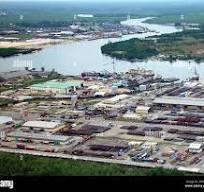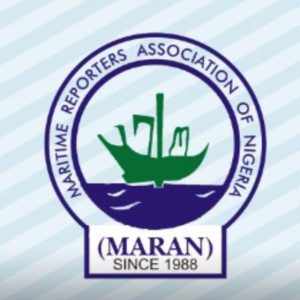By Enyeribe Anyanwu
Yesterday, the CEO of Nigerian Midstream and Downstream Petroleum Regulatory Authority (NMDPRA), Farouk Ahmed, in Abuja, told journalists that refined petroleum products from Dangote Refinery was inferior to imported ones and cannot be relied upon; that the refinery is only 45% completed and has not been issued operational licence, and that the world’s largest refinery is pushing to become a monopoly.
These are very weighty disclosures or allegations that have caught most Nigerians gaping. Things are, indeed, happening at a dizzying pace in the nation’s oil industry, albeit negatively. It appears that the chicken has come home to roost, as the allegations of sabotage appears to be gaining some credence.
But where do Nigerians really go from here? How does the average Nigerian survive the latest onslaught on the thin thread that separates hope from despair? How does he sustain the long-held hope in affordable, quality, locally refined petroleum products in the nearest future? Why has Nigeria’s God-given natural resource become such a curse to the people? Why?
If the NMDPRA boss had stopped with Dangote Refinery, one would not have been so worried, but including other local refineries, saying that their products are all inferior to imported ones, fills one with utter despair.
“Dangote Refinery is still in the pre-commissioning stage. It has not been licensed yet. We haven’t licensed it yet. They are still in the pre-commissioning stage. I think they are about 45 per cent in completion rather.
“So, we cannot rely heavily on one refinery to feed the nation because the company is requesting that we should suspend or stop all importation of petroleum products, especially AGO and Jet Kero, and direct all marketers to the refinery.
“That is not good for the nation in terms of energy security, and that is not good for our markets in terms of monopoly. So, in terms of quality, currently, the AGO quality in terms of sulfur in the lowest as far as a West African requirement of 50 ppm.
“Dangote Refinery, as well as some major refineries, like Walter Smith’s refinery, other refineries, they produce 650 to 1,200 ppm. So, in terms of quality, their quality is much, much inferior to the imported commodities.”
This is the crux of all that Farouk Ahmed said. This is a statement coming from the head of a regulatory agency several months after a refinery has commenced operations –the kind of comments one expects to hear before operations begin.
The implication of these utterances is that Nigerians should see refined petroleum products from Dangote Refinery as inferior, dangerous and hazardous. That they should see the refinery as operating illegally, having not been given operating licence. And that Dangote Refinery wants to be a monopoly. What a frightening scenario!
One must note, however, that all these are coming after the brush of NMDPRA and NNPCL with Dangote Refinery. It can be recalled that not long ago, the Vice President, Oil and Gas at Dangote Industries Limited, Devakumar Edwin accused NMDPRA of indiscriminately issuing import licenses to importers who are importing bad fuel into the country.
Devakumar had also cried out that International Oil Companies were refusing to sell crude oil to their refinery, preferring to export the crude, adding that the Dangote Refinery buys crude from IOCs at $6 above the market price.
Edwin had said, “It seems that the IOCs’ objective is to ensure that our petroleum refinery fails. It is either they are deliberately asking for a ridiculous/humongous premium or they simply state that crude is not available.”
In addition, Alhaji Aliko Dangote himself only a few days ago disclosed that Nigeria, through NNPC holds only 7.2% share in Dangote Refinery and not 20% share being touted by NNPC. Dangote disclosed to newsmen that NNPC was given up to last June to pay up the balance for its share in the refinery but it failed to do so, thereby now possessing only 7.2 stake in the refinery. The Chairman, Dangote Group had a few weeks ago also alleged that some big people in the oil industry were sabotaging his refinery.
All these are enough to trigger all we are hearing from NMDPRA today..
Looking at all this, one cannot help but ask, why NMDPRA allowed Dangote Refinery to start operations if it is yet to be completed, and has not received operating licence? Why did it allow its products to enter into the market if they were that inferior to imported products? And as the agency responsible for the issuance of the certificate, why is the certificate not been issued to the refinery more than one year after technical completion, and before it started operations?
After its commissioning by former President Buhari in May 2023, it took more than one year for the refinery to start operations. The long delay in starting operations was said to be as a result of the refinery undergoing inspections and regulatory compliance tests in order to be certified. So, after more than a year and a few months’ regulatory compliance tests, the company is yet not certified? How are Nigerians supposed to believe all this?
If it is true that the refinery is not certified, and is operating illegally, is NMDPRA not complicit for allowing it to start operations, as the regulator that is supposed to issue the certificate? And why is it still not issued till now?
Indeed, there more questions than answers.
Concerning the allegation of pushing to be a monopoly, many Nigerians are inclined to believe the NMDPRA MD. The story about Dangote Cement and other cement industries in Nigeria is well-known, and nobody wants a replication of that in the crude refinery industry. There are other smaller refineries that have started operations, and several others that about to start. Some can’t begin operations because of lack of feedstock.
If Dangote Refinery is pushing to be a monopoly at the detriment of other investors in the business and Nigerian energy consumers in general, that should be resisted. But the idea of monopoly appears to be mere inference. If what Dangote Refinery is pushing for is a stoppage of fuel importation, then that is what Nigerians have been yearning for: discontinuance of fuel importation. It is clear to all Nigerians that NNPCL and NMDPRA have no qualms about Nigeria’s continued importation of petroleum products –in fact, they would want that to continue while paying lip-service to its discontinuation.
And if, indeed, Dangote Refinery is harbouring the thought of, or is pushing to be a monopoly in the supply of petroleum products in the country, does the solution lie in de-marketing it, instead of ensuring that other up-coming refineries are encouraged and supported to operate by having serious anti-trust laws that will deter monopoly, and encourage competition?
For goodness sake, the so-called deregulation of the sector should be meant to work, with the expected competition among operators and marketers for the good of the people. Having serious regulations and implementing them is the way to stop monopoly. Knowing the right things to do, and refusing to it while throwing allegations, smacks of bad faith.
When Dangote Refinery started operations, the news was that the first products were exported. Nigerians have also been using the diesel from the refinery, while the nation’s aviation industry has been using the Jet-1. No complaint has come from any quarters, either locally or internationally.
So, what informed all these ‘revelations’? Could this be a case of retaliatory action, or a case of sour grapes from operators of a government that has lost out in a big energy game? Or is it part of the inordinate desire to perpetuate fuel importation in the interest of the importing cartel?
The answers to these questions, for now, are blowing in the wind.





More Stories
Resolving the 4 per cent FOB Levy imbroglio
Interrogating NIWA’s 70% death reduction claims on inland waterways
Dantsoho moves to reverse decades-old neglect of Eastern Ports